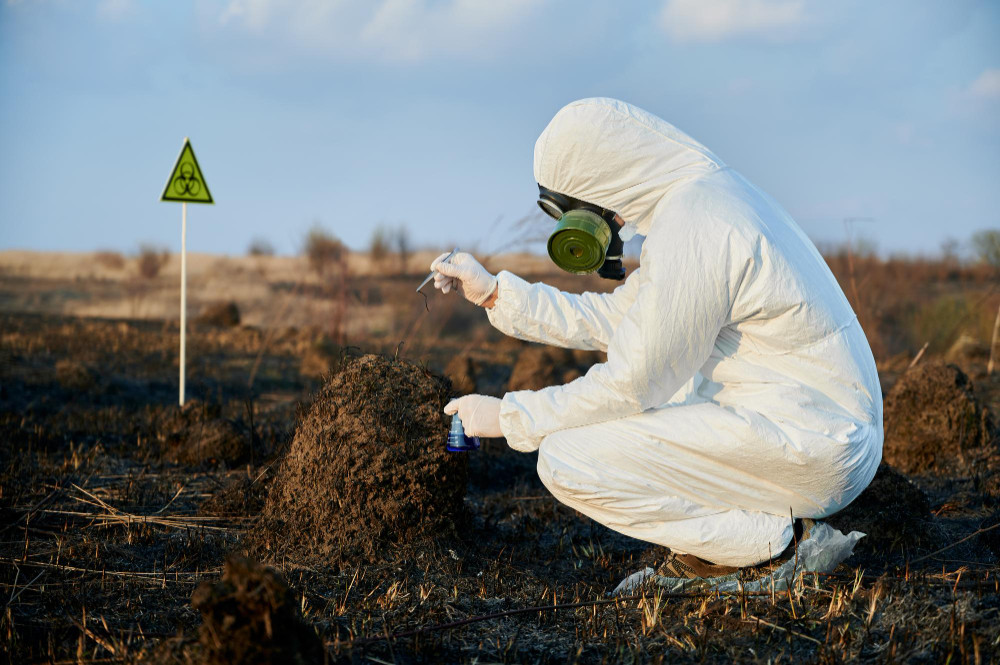Radiation technology is useful in many aspects of human life, but excessive radiation exposure can have harmful effects on the body, including poisoning and a higher risk of cancer. Radiation disasters can also result in fatalities.
What is nuclear radiation?
Radiation is the emission of energy from electromagnetic waves or moving subatomic particles. There are low doses and large doses of radiation exposure. In general, radiation with high doses has the potential to be harmful to humans. Humans rarely receive large doses of radiation (~50 rem) due to the strict regulation of radiation; however, even at lower doses, DNA in cells can be damaged or altered.
In fact, soil, water, air, and even the human body contain a variety of naturally occurring radioactive substances. Currently, the most common sources of artificial radiation exposure in humans are X-ray machines and radiopharmaceutical materials used for diagnosing diseases, treatment, radiotherapy and other medical devices.
Radiation exposure can also come from natural sources (e.g. radon gas that breaks down in the environment in both soil and water) or other sources. Exposure can occur internally (via ingestion, inhalation, or contaminated wounds), externally (with or without contamination of skin, hair, or clothing), or both.
Read more: Penyebab dan Faktor Risiko Kanker Kulit
Dangers of high-dose radiation exposure to health
Despite the many benefits of nuclear radiation for everyday life, exposure to excessive or high doses of radiation can cause health problems. People who are exposed to nuclear radiation in very high doses or for a long time can experience poisoning, and if the radiation reaches the internal organs, it can affect how the organs function and work. This condition is known as radiation poisoning.
However, please note that low doses of radiation, such as the use of X-rays and CT scans, do not cause radiation poisoning conditions. A person is at risk of radioactive radiation poisoning if they work or are around nuclear reactors for a long time without special security, are exposed to radioactive waste and are exposed to nuclear reactor explosions.
Depending on the dosage taken, excessive radiation exposure can harm living tissues and organs. The size of the potential damage depends on several factors, including:
- Types of radiation
- Sensitivity of exposed tissues and organs
- Exposure route and duration
- Radioactive isotopes involved
- Individual characteristics of the exposed person (age, gender, and underlying health conditions)
The risk of negative health effects depends on the radiation dose. The higher the dose, the higher the risk of side effects. The risk is significantly reduced if the radiation dose is low or administered over an extended length of time, since the body will repair any damage done to cells and molecules.
Read more: Penyebab dan Faktor Risiko Kanker Endometrium
Symptoms of radiation poisoning
Symptoms of nuclear radiation poisoning can include the following:
- Nausea and vomiting
- Diarrhea
- Headache
- Fever
- Dizziness and disorientation
- Body weakness and fatigue
- Hair loss
- Vomiting of blood and the appearance of feces in blood due to bleeding of internal organs
- Infection
- Low blood pressure
If you experience exposure to large amounts of nuclear radiation and experience these reactions, you should see a doctor immediately.
Exposure to nuclear radiation can also cause long-term health problems. Some long-term disorders of nuclear radiation include:
- Damage to body cells leads to complications
The areas of the body most often affected are the stomach, blood vessels, mouth and cells that produce blood. Damage to these organs' cells sets off immune system malfunctions that leave a person vulnerable to infection and frequently result in death.
- Increased risk of developing cancer
Exposure to nuclear radiation can trigger cell mutations that lead to cancer. Some of the most common cancers are skin cancer, bone cancer and thyroid cancer.
- Increased risk of disability
Exposure to high doses of nuclear radiation can be harmful to health. If your job requires you to be in an area that has high levels of nuclear radiation, you should use anti-radiation Hazmat.
If you need medical advice or consultation, you can either visit a doctor or make use of the consultation features that are available in the Ai Care application by downloading the Ai Care application from the App Store or Play Store.
Looking for more tips and information about other health conditions, first aid, and home remedies? Click here!
- dr Hanifa Rahma
Mayo Clinic. Radiation Sickness. Available from: https://www.mayoclinic.org/diseases-conditions/radiation-sickness/symptoms-causes/syc-20377058#
Smith, M. (2022). What Is Radiation Sickness. Available from: https://www.webmd.com/cancer/radiation-sickness-facts#
WHO. (2023). Radiation and Health. Available from: https://www.who.int/news-room/questions-and-answers/item/radiation-and-health#
Atomic Archive. Radiation Effects on Humans. Available from: https://www.atomicarchive.com/science/effects/radiation-effects-human.html
EPA. Radiation Health. Available from: https://www.epa.gov/radiation/radiation-health-effects
Cleveland Clinic. Radiation Sickness. Available from: https://my.clevelandclinic.org/health/diseases/24328-radiation-sickness#












